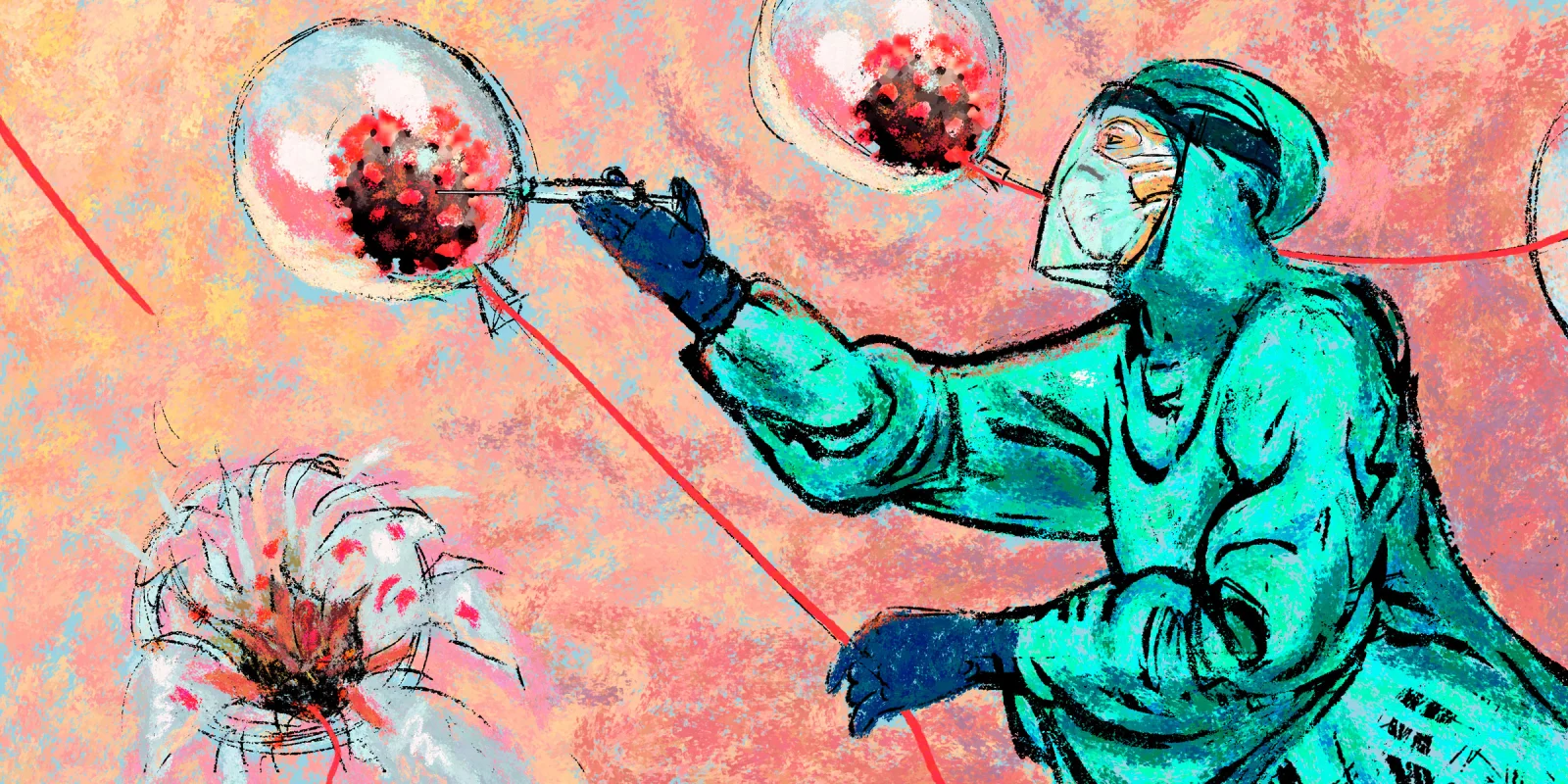Infectious disease (ID) clinicians and international researchers gathered in Boston Oct. 11-15 for IDWEEK 2023 to showcase new research and meet with industry partners. Doximity met with IDSA Chair Heather Yun, MD on her thoughts on how the field has evolved since the start of the COVID-19 pandemic, what she and IDSA are watching during IDWEEK 2023, and the increased attention that infectious disease has received in recent years.
Dr. Yun acts as chair of IDSA and appreciates its ability to reignite passion in infectious disease clinicians and researchers through IDWEEK programming. “I think one of the really important things about IDWEEK is that ability to bring people together just to connect and collaborate, but [also] to fall in love again with this discipline that caught our attention so many years ago [and] made us say, I want to grow up and be part of this,” Dr. Yun said.
This enthusiasm was evident throughout the convention center, as attendees greeted each other, rekindling friendships and building new connections throughout the field. Reminiscing on her first IDWEEK 19 years ago, Dr. Yun recalled, “It was kind of overwhelming. I was nervous that no one would come and see my poster, and I was nervous that someone would come and see my poster.” Since that first meeting, Dr. Yun has grown into her role within the field and looks forward to each yearly meeting and the “beautiful community of support.”
With learnings from the COVID-19 pandemic and a supportive community of clinicians and researchers, the field is burgeoning with new research. “We’re really on the verge of a renaissance period of ID research such as we saw in the Black Plague,” said Dr. Yun. “There were huge advances in science and in thought. I think some of the advancements that were made during COVID will end up being broadly applicable to other things.”
The COVID-19 pandemic pushed scientists and clinicians, many of them in infectious disease, to come up with novel solutions to reduce the spread of the novel coronavirus. The pandemic provided a chance to use developing technologies such as mRNA vaccines and wastewater surveillance, which have now become standard within the field. Dr. Yun highlights that one of the popular abstracts from this year’s meeting discussed using wastewater surveillance to conduct population-scale epidemiology for RSV and influenza, expanding the tracking capabilities of the surveillance method.
“The proof of concept was with COVID, but then last summer, wastewater surveillance was used to detect a very large polio outbreak in New York state that no one would’ve been able to track if they had just been relying on patients to come in [with] symptomatic infection,” Dr. Yun said. She believes that we are “just scratching the surface” with wastewater surveillance and that it has the power to improve how public health officials are able to rapidly respond to emerging infectious diseases.
With COVID-19 cases waning and the federal government declaring an end to the public health emergency on May 11, ID clinicians feel they finally have room to breathe and reflect on the past three years. Dr. Yun elaborated on the relief that clinicians feel this year: “[We have] a renewed sense of possibility in the future as we emerged from a period of time which was really all-consuming for many of us and very narrowly focused for a lot of people.”
While COVID-19 had strong undertones at this IDWEEK, the research presented went far beyond the pandemic. The “What’s Hot in Clinical ID” session on Wednesday showcased priorities for infectious disease clinicians: respiratory infections, new vaccines and therapeutics, emerging pathogens from climate change, and multidrug resistance. Respiratory infections such as RSV, Group A Streptococcus, and influenza were top of mind following the FDA approval of the first RSV vaccine for adults 60 and older in May. New data released on the first day of IDWEEK for intranasal COVID-19 vaccines show a robust immune response to multiple strains and variants, leading HHS to invest an additional $500 million to advance development of vaccines for HHS’ Project NextGen.
Some of the most widely attended sessions focused on emerging pathogens, many brought by climate change. These include the novel cases of locally-acquired malaria that have not been seen in the U.S. in 20 years as well as skyrocketing vibrio vulnificus cases moving up the Eastern Seaboard. A session on Thursday entitled “Disease X, The Next Pathogen of Pandemic Potential: How to Avoid, Track and Prepare” focused on the specific pathways that increase the incidence of zoonotic disease, a major driver of emerging pathogens. The presentation showed that climate change, wildlife consumption and trade, and limited biosecurity of livestock pushes people closer to vectors, increasing spillover events. In the last 30 years, 75% of novel pathogens have been traced back to wildlife.
Multidrug resistance, a topic of Dr. Yun’s research, has also been accelerated by climate change and a lack of antibiotic stewardship. Struggles still remain with gram-positive bacteria, most notably methicillin-resistant staphylococcus aureus and fungal resistant infections such as candida auris, which has been a hot topic due to its ability to rapidly spread in health care settings. Neisseria gonorrhoeae was highlighted in the “What’s Hot in Clinical ID” lecture, an infection that is “harder to track than some of these other ones because patients are in the community and not presenting for care,” Dr. Yun said.
Dr. Yun is appreciative of the supportive culture surrounding infectious disease clinicians. “This community of people is just incredible, wonderful, patient-centered advocates, interesting [and] humble,” Dr. Yun said. “It's wonderful to be able to serve in a support role like this where we can put together a feast all year long, a beautifully curated feast, and then just watch people show up and enjoy this meal. It's a great privilege to be a part of it.”
Illustration by Jennifer Bogartz







